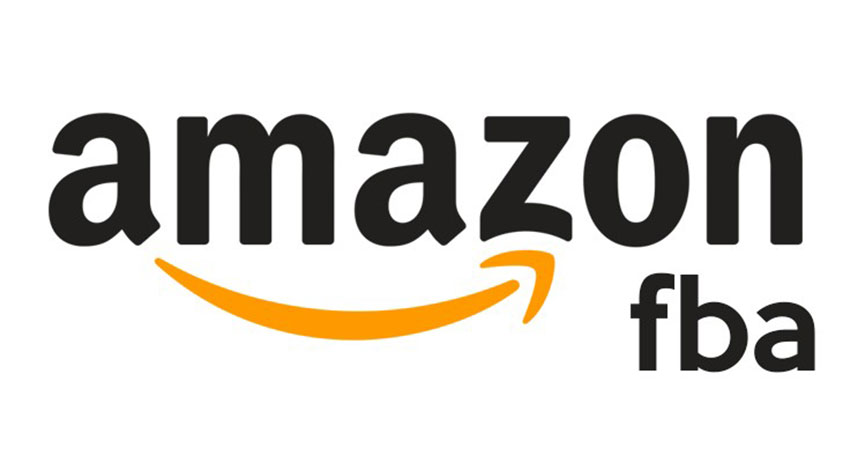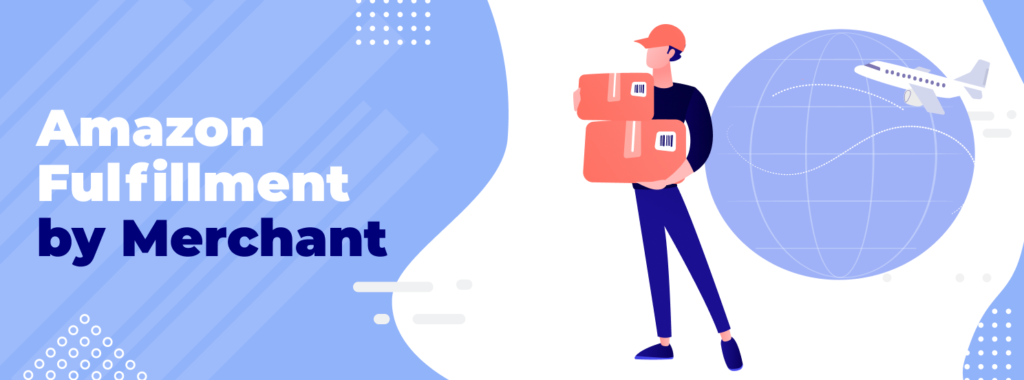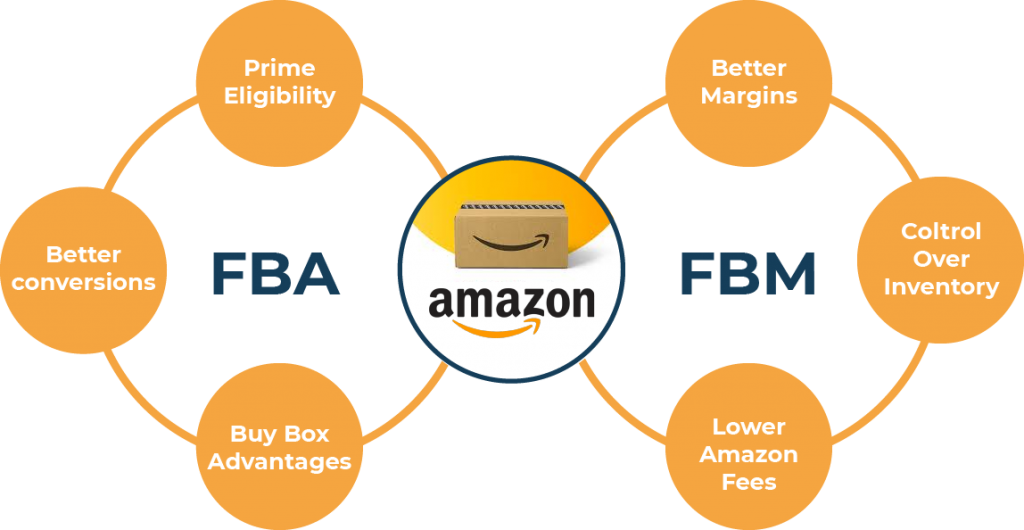
11 Oct Amazon FBA vs Amazon FBM: A complete guide and which one is better?
Every day more than 3000 sellers register on Amazon and each one of them gets to choose how to fulfill their orders. They have two primary options; manage it on their own or pay for Amazon’s services and ask them to take care of it.
Amazon ships and manages all orders on the behalf of the seller through the Fulfillment by Amazon program. If you decide to do it on your own, you’ll be an option for the Fulfillment by Merchant program.
A large majority choose the Amazon FBA program while some use Amazon FBM or both.
What is Amazon FBA?
As suggested by its name, it’s the facility provided to the seller by Amazon to use their services to manage their orders. The sellers send their inventory to an Amazon warehouse from where they will proceed to their destination when orders are received.
Cons of Amazon FBA
- Amazon Fulfilment Fees
This covers costs relative to shipping, packaging, and handling by Amazon. - Storage Fee
You have to pay a monthly fee to utilize Amazon’s storage facilities. - No Control
If you’re opting for FBA, you would have to do everything Amazon’s way. You cannot go to their facilities and make sure your items are received properly and kept in ideal conditions. You would have to entrust Amazon with what they promise you. - Labeling and Packaging
Amazon has strict rules for labeling your items when you dispatch them to their facilities. If you don’t follow their instructions to the dot your inventory is at risk of getting rejected when it is reached. You must consider the time and cost you would invest in preparing your items when you choose FBA.

Pros of Amazon FBA
- Prime Shipping
Sellers who opt for Amazon FBA can subscribe to Prime Shipping. This service would make sure customers receive their order within 2 days with no hidden or additional costs. This significantly increases sales.
Customers generally prefer to go for Prime sellers rather than those offering standard shipping.
- Buy Box
The Buy Box is where the shopper views the option of ‘’Buy Now’’ and ‘’Add to Cart’’. A sale made through the Buy Box is rewarded to one seller at a time. Amazon would prefer to choose an Amazon FBA seller to reward the sale. This means becoming an FBA seller would win you extra sales. - Set your eyes on Selling and not Fulfilling
Training staff, keeping track of inventory, and looking out for carrier rates is a trying task. It’s a huge responsibility. FBA frees you from all the hassle and gives you room to focus on sourcing, product hunting, and developing your items. - SEO
Amazon refrains from commenting as to how exactly its algorithms work. However, it is commonly agreed upon that the Amazon FBA seller are given priority during searches. - Customer Service
Amazon would take care of delivering all your orders and addressing queries. They would also assist your customers. This keeps you at the back end without having much direct communication with the buyers but eases your responsibilities all the same. - Multi-Channel Fulfilment
This is an additional feature for merchants who want to rely on Amazon facilities even if their orders are not received from its marketplace.
You can utilize Amazon’s fulfillment services and storage facility for orders on your website, Facebook marketplace, or any other channel. However, MCF charges are higher than Amazon FBA so you must bear that in mind.
What is Amazon FBM?
Fulfilled by the merchant is when you take complete responsibility for your product’s shipment. You may send them out yourself or outsource a third-party shipping service (other than Amazon). In any way, the seller is entirely responsible for providing shipping and customer services for their products.

Cons of Amazon FBM
- Less Buy Box
FBA offers will usually leave behind standard FBM features which can slow sales. - No SEO
FBA offers a boost in highlighting the products of its seller, which is not an offering made to Amazon FBM sellers. - Customer Service and Return
FBM sellers have to deal with their customers directly and offer support. They would also need to facilitate returns themselves. This is a con from the hassle point of view, but it does pose a great advantage to the seller as they would understand the needs of buyers better.
Pros of FBM
- More control
Merchants have more control over their stock and its stored conditions. They can go through hands-on inspection. Moreover, Amazon has previously changed Amazon FBA policies which have caused problems for Amazon FBA sellers.
You can also use branded packaging with Amazon FBM - Lower Amazon Fees
Merchants don’t have to pay higher Amazon fees like in Amazon FBA. This will be cost-efficient only if your own fulfillment costs are lower than FBA fees.
Amazon FBA also charges to process returns, longer utilization of Amazon storage facility for a longer period of time, and for removing stock from the warehouse.
Seller Fulfilled Prime
This is a Program offered to Amazon FBM sellers to attain the Prime badge. As we previously discussed Prime badge is solely acquired by Amazon FBA sellers, however, this program creates room for exception.
To be eligible for SFP, you must complete all your orders within 2 days without any hidden or additional costs. Moreover, you would need to be exceptionally efficient as only great performance will give you an edge. You would also be provided with a trial period of up to 90 days to prove your consistent standards.
SFP allows the same facilities as Amazon FBA which includes the increase of sales and references over Amazon FBM sellers.

Final Verdict – What should you go for?
There are benefits for both, Amazon FBM and FBA.
Most Amazon-only sellers would prefer FBA, as they can focus solely on their products while Amazon takes responsibility for taking care of the orders. With an additional fee, Amazon also offers the MCF program. FBA is excellent, as long as it suits your pockets.
With FBM, sellers have more control and improve their profits as they won’t be paying for all of Amazon’s services. SFP merchants have a greater edge to survive in the market.
In most cases, Amazon FBA is more effectively used by the seller for its vast offerings. It doesn’t seem like a high price to pay considering the support the sellers are provided with. The benefits outweigh the cost it poses and approximately 99% of merchants vouch for it. Amazon FBM should be your choice if you’re selling heavy-duty products such as furniture. You may also use it as a backup in case where you run out of Amazon FBA inventory.
It’s important to weigh all the aspects before making the right choice for your business. Consider all the factors, your capital, and the responsibility it entails to choose either Amazon FBA or FBM, then go for the best solution!

No Comments